Search Images
Browse Content (p. 1548)
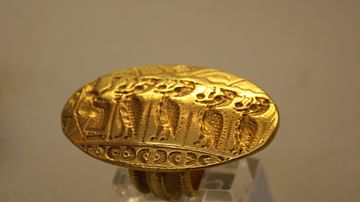
Image
Mycenaean Engraved Gold Ring
A gold ring from Mycenaean Tiryns, the largest such example. The engraved scene depicts lion-headed creatures in a religious procession carrying libation vases. On the left side is a seated goddess. 15th century BCE. (National Archaeological...
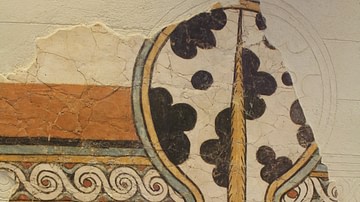
Image
Shield Fresco, Mycenae
A fragment from a fresco from the acropolis of Mycenae depicting the typical figure-of-eight shield design. 15th century BCE. (National Archaeological Museum, Athens)
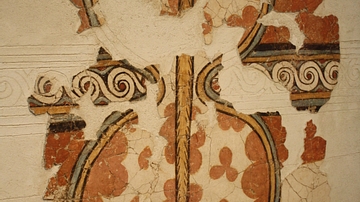
Image
Mycenaean Shield Fresco
A fragment from a fresco from the acropolis of Mycenae depicting the typical figure-of-eight shield design. 15th century BCE. (National Archaeological Museum, Athens)

Image
Bronze Tripod, Mycenae
A Mycenaean bronze tripod from Grave IV, Grave Circle A, Mycenae, 16th Century BCE. (National Archaeological Museum, Athens)
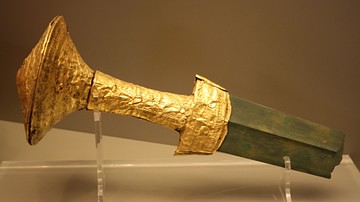
Image
Mycenaean Gold Sword Hilt
A Mycenaean gold sword hilt with bronze blade. From a tomb in Skopelos, 15th century BCE. (National Archaeological Museum, Athens)
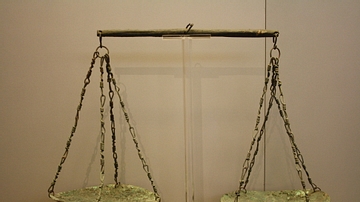
Image
Mycenaean Bronze Scales
Mycenaean bronze scales from the Vapheio tholos tomb, Laconia. 15th century BCE. (National Archaeological Museum, Athens)
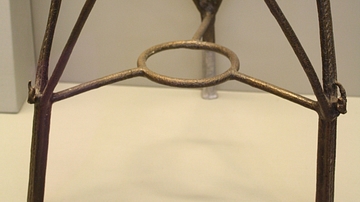
Image
Mycenaean Bronze Tripod, Tiryns
A Mycenaean bronze tripod from Tiryns. Decorated with cow and goat heads with pomegranate and birds hanging from the upper ring. 12th century BCE. (National Archaeoloigcal Musem, Athens)
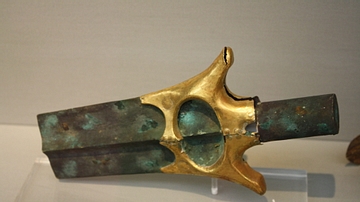
Image
Mycenaean Sword
The gold revetment of a bronze Mycenaean sword. Grave Circle A, Mycenae, 16th century BCE. (National Archaeological Museum, Athens)

Image
Greek Ship's Anchor
A stone anchor from a Greek sailing vessel, Piraeus. (Archaeological Museum, Piraeus)
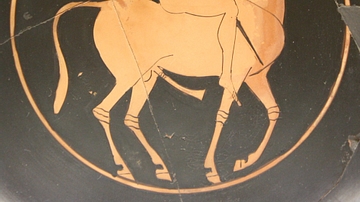
Image
Red-Figure Satyr
The tondo of a red-figure kylix depicting a Satyr riding a donkey. c. 510 BCE. (Agora Museum, Athens)